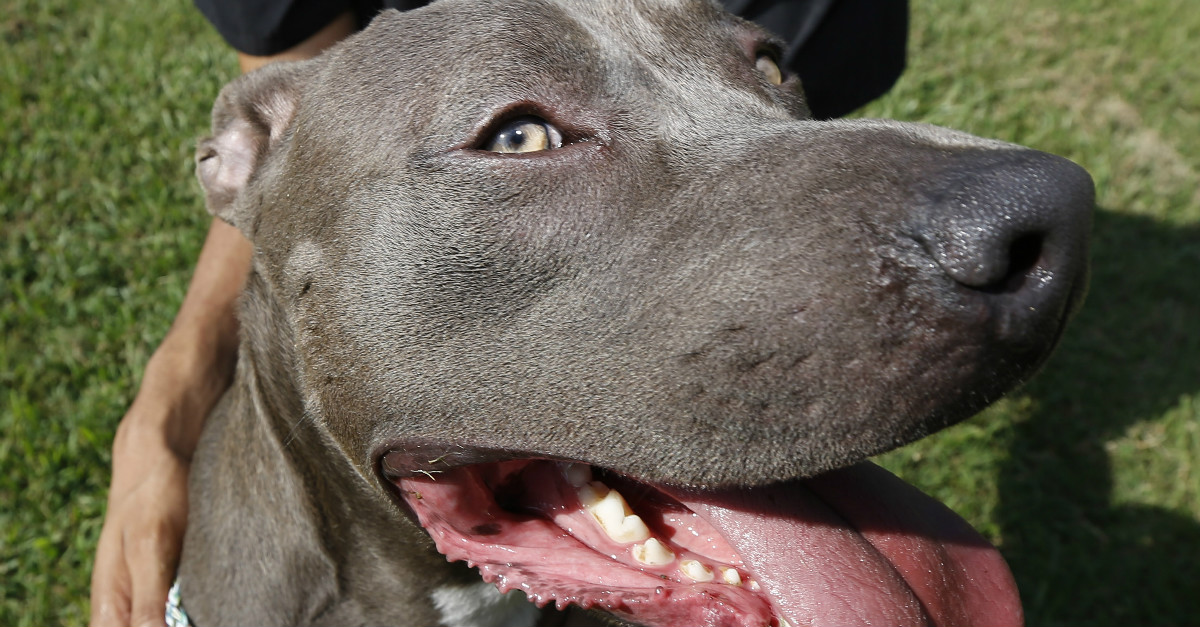When my husband and I moved to the Twin Cities a few years ago, we ran into unexpected trouble trying to find an apartment. You see, one of our dogs, Abby, is a German Shepherd mix. The mix part probably means she’s a good bit smaller than a pure German Shepherd, but she definitely has the shepherd look.
Videos by Rare
It’s adorable.
https://www.instagram.com/p/BRrurDFAN4M/
RELATED: The federal government may have spent millions torturing dogs to death last year
It also meant about 80 percent of the apartments we saw listed were off-limits to us. While we expected lots of places wouldn’t take dogs, we were surprised to see shepherds on many landlords’ lists of banned breeds. (Thankfully, we eventually found a kind rental agent who, while looking at our dog and completing our rental application, suggested she might be a “terrier mix.” He figured out “alternative facts” way before Kellyanne Conway.)
Unfortunately, landlords aren’t the only people worried about certain types of dogs. Local governments are, too, and when the government makes a breed ban, its ramifications are far more serious than an inconvenient apartment hunt.
I’ve written at Rare before about the tragic consequences such bans can produce, like the story of a Louisiana town that made a law to ban all Rottweiler and Pitt Bull dogs, including a dog owned by a young girl with a disability that required her to use a wheelchair. Her Pitt Bull was a therapy dog and a huge source of comfort to her, but by city law her family was told to give the dog away or see him forcibly put down.
After nationwide uproar, that town backed down — but breed-specific legislation is still on the books elsewhere, as Marianne March writes in a new piece at the Foundation for Economic Education:
Over 1,000 US cities and dozens of counties within 36 states have what is known as “breed-specific legislation.” Breed-specific restrictions often require the owners of certain dog breeds to do things like muzzle the dog in public, contain their pets within a kennel that is built to given specifications (e.g., chain link walls and concrete floors), purchase a minimum dollar amount of liability insurance, make the dog wear a “vicious dog” identifier, etc. Local law might include any of these controls or more.
The outright bans on certain breeds are the cruelest of all, she explains, and have negative consequences even for dogs whose owners defy the ban:
Breed bans are even worse, as they can lead to dogs being rounded up and exterminated. A ban can require that all dogs that resemble a “targeted breed” be removed from the jurisdiction or are subject to being killed by animal control. Although, in some cases, grandfather clauses may allow banned breeds to stay if they are registered by a certain date, however, they may still be subject to other restrictions.
As you can imagine, when confronted with a breed ban, many pet owners decide to hide their banned dogs. This leads to negative health consequences for the animals and potential problems for the community because banned dogs will be unable to visit veterinarians and receive rabies shots.
RELATED: Dogs are capable of deception, study says
It should go without saying that no one wants vicious dogs roaming the streets of our communities. It should also go without saying that a dog’s breed does not make it vicious.
Yes, an aggressive Pit Bull can do more damage than an aggressive Chihuahua, but so can an aggressive Labrador—and no one is suggesting we ban Labs. With any breed, it is the owners who determine the dog’s behavior far more than genetics—and indeed research has demonstrated that breed-specific laws don’t result in decreased dog bite incidents.
As with many misguided government regulations, the unintended consequences of these sorts of law far outweigh the good they are intended to do. And really, it’s none of the government’s business what kind of dog we want to own. That’s between me and my dog—and maybe my landlord.



